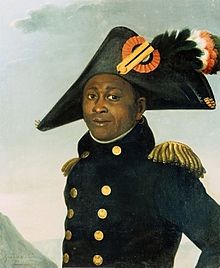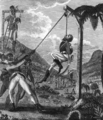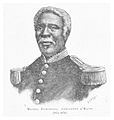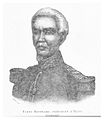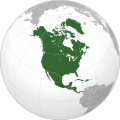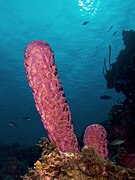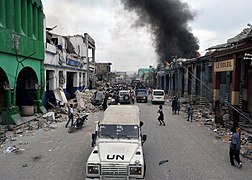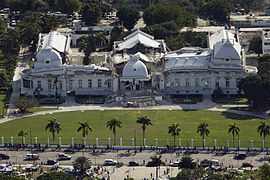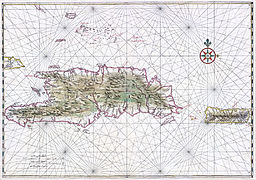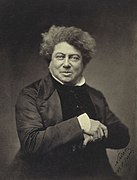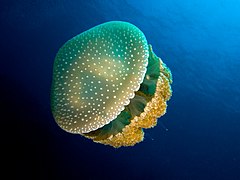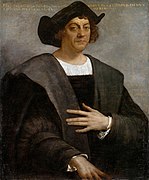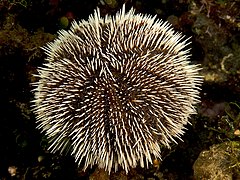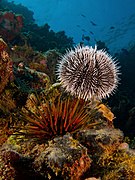| WikiProject | Requested articles | Assessment | Vital articles | Members | Noticeboard | Recognized content | To do | Portal |
Haiti, officially the Republic of Haiti, is a country on the island of Hispaniola in the Caribbean Sea, east of Cuba and Jamaica, and south of The Bahamas. It occupies the western three-eighths of the island, which it shares with the Dominican Republic. Haiti is the third largest country in the Caribbean, and with an estimated population of 11.4 million, is the most populous Caribbean country.0 The capital and largest city is Port-au-Prince. (Full article...) Selected article -François-Dominique Toussaint Louverture (French: [fʁɑ̃swa dɔminik tusɛ̃ luvɛʁtyʁ], English: /ˌluːvərˈtjʊər/) also known as Toussaint L'Ouverture or Toussaint Bréda (20 May 1743 – 7 April 1803), was a Haitian general and the most prominent leader of the Haitian Revolution. During his life, Louverture first fought and allied with Spanish forces against Saint-Domingue Royalists, then joined with Republican France, becoming Governor-General-for-life of Saint-Domingue, and lastly fought against Bonaparte's republican troops. As a revolutionary leader, Louverture displayed military and political acumen that helped transform the fledgling slave rebellion into a revolutionary movement. Along with Jean-Jacques Dessalines, Louverture is now known as one of the "Fathers of Haiti". Toussaint Louverture was born as a slave in the French colony of Saint-Domingue, now known as Haiti. He was a devout Catholic, and was manumitted as an affranchi (ex-slave) before the French Revolution, identifying as a Creole for the greater part of his life. During his time as an affranchi, he became a salaried employee, an overseer of his former master's plantation, and later became a wealthy slave owner himself; Toussaint Louverture owned several coffee plantations at Petit Cormier, Grande Rivière, and Ennery. At the start of the Haitian revolution he was nearly 50 years old and began his military career as a lieutenant to Georges Biassou, an early leader of the 1791 War for Freedom in Saint-Domingue. Initially allied with the Spaniards of neighboring Santo Domingo, Louverture switched his allegiance to the French when the new Republican government abolished slavery. Louverture gradually established control over the whole island and used his political and military influence to gain dominance over his rivals. (Full article...) Did you know
CategoriesSelected picture The cross on Morne Jean, above Cap-Haïtien. General imagesThe following are images from various Haiti-related articles on Wikipedia.
Related portalsRelated portals and portals of neighbouring countries:
TopicsRecognized content
Featured articlesFeatured listsGood articles
Featured pictures
WikiProjectsGeographical:
History and Society: Things you can doIn the newsOctober 2019: The 2018–19 Haitian protests have challenged Jovenel Moïse's government as more becomes known about the Petrocaribe Affair. Associated WikimediaThe following Wikimedia Foundation sister projects provide more on this subject:
Discover Wikipedia using portals | ||||||||



